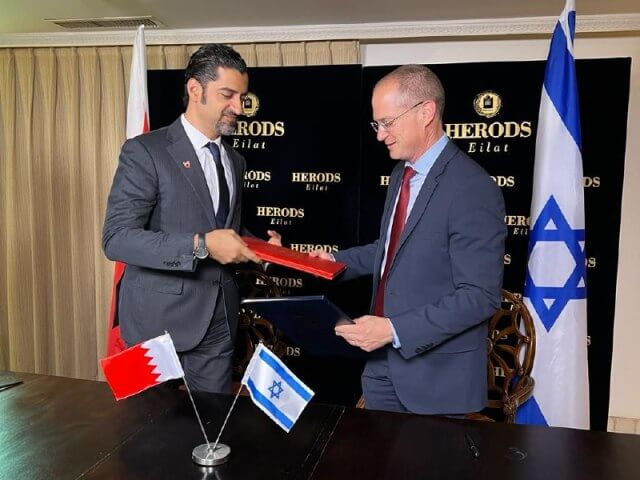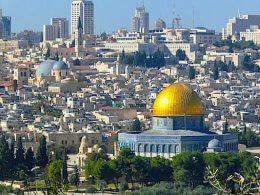All Israel News Staff | October 22, 2022
Israel and its Abraham Accords partner Bahrain signed an agricultural cooperation agreement on Wednesday at the International Summit of Food Technologies from the Sea and the Desert, hosted in Eilat, Israel’s southern-most city.
The summit, organized by Israel’s Ministry of Agriculture and Rural Development and Ministry for the Development of the Negev and the Galilee, was the first of its kind, focusing on food scarcity and its relation to climate change.
The Israel-Bahrain agricultural agreement signed on Oct. 19 – based on a discussion between Israeli Minister of Agriculture and Rural Development Oded Forer and his Bahraini counterpart Wael Bin Nasser Al Mubarak – promotes and expands cooperation between the two nations in agriculture, livestock and food security.
The agreement seeks to enhance the mutual sharing of a range of agricultural expertise and technology, and to improve the quality of agricultural production as a whole.
Forer stressed that the summit would help promote Israel as a center of research and development in desert-grown and sea-grown food.
Seventy representatives from around the world participated in the conference, including 10 ministers and deputy ministers; participants came from the United States, Chile, Ghana, Singapore, Romania, Malta, Jordan the United Arab Emirates, Morocco, the Netherlands, Australia, Iceland and more.
As the conference was attended by senior delegations from Morocco, Jordan and the UAE, the first-of-its-kind summit was “an important step towards promoting cooperation,” Forer noted.
According to an earlier press release issued by Israel’s Ministry of Foreign Affairs, the summit aimed to promote “knowledge and technologies” in the aforementioned fields, in addition to “strengthening research and business collaborations in the field.”
The conference was meant to promote “Israel’s contribution and leading role in the area of marine and desert agricultural technologies,” while helping to “develop the city of Eilat and the [wider] Eilat region as a national and international center for the production of food from the sea and the desert,” the ministry stated.
Last year, Israel adopted a multi-year development plan for Eilat, setting aside $48 million (170 million shekels) to transform the city and its environs into an international center for food tech and agri-tech. Eilat relies heavily on the tourism industry, but an Israeli research study earlier this year suggested that “the number of international and domestic tourists to outdoor recreation sites in Israel will significantly decline” by 2050 because of rising temperatures.
Before the food conference, Forer emphasized that Israel has “tremendous potential” for inventing technology that can address food insecurity and climate change.
“The whole world is currently dealing with the issues of food security and the climate crisis,” Forer said. “The connection between the desert and the sea offers much opportunity to develop advanced technologies on which future food growth will be based.”
According to Forer, Israel “is already leading relevant research and technology development. This conference will set the wheels turning on cooperation with countries across our region with similar challenges and climates.”









